How to eliminate your psychological tripwires
Life is playing with itself
Life may be viewed as a game. Experientially, I have found this perspective to provide an excellent foundation for the creation and expression of joy, love and freedom.
I do not mean that life is a mere game, where carnal, self-centric acts are valid plays and toying with other characters is condoned. It is a glorious unfolding of interconnected events, perpetually pirouetting throughout space and time, energy and matter — but with no final destination. Life is not bound by an end goal, a final objective. Life is cyclic. Existence is the ceaseless chasing of its own cosmological tail.
Life is musical — you wait not for the end of the composition but enjoy the melody as it unwinds. Life is simply life-ing. It is, one might say, playing with itself.
The Player, the In-Game Character and the Onboard Assistant
Within this Game of Life, the primary objective is to first resolve the split created within the individual Consciousness (or Player).
Usually, the fun and vibrancy of the Player’s immediate experience is shrouded by the continuous seeking and resistance generated by his Onboard Assistant, the mind. This “fog of unease” is a by-product of the mind’s continuous quest to guarantee that the In-Game Character (the identity that Consciousness is playing, known commonly as ego) is presented in a particular way to other Players, protected from an illimitable range of unfavourable plotlines, or satiated by a titillating mélange of in-game pleasures.
In other words, your consciousness is split between the realness and richness of the Game World and a (usually unpleasant) imaginary one.
The Game World: The external energetic manifestation of your here and now (a.k.a. reality)
The Player: The conscious awareness of the moment to moment changes to the in-game here and now; the animating presence behind your entire in-game experience (a.k.a. consciousness, awareness, being, soul)
Onboard Assistant: This is the conscious mind (part of your Biocomputer, or brain) which, when operating efficiently, acts as an artificial intelligence system, relaying predictions and conceivable interactions with objects and other Players in the form of running commentary. It is a creative tool.
In-Game Character: This is the big, cumulative idea stored in the memory banks of your Biocomputer made up of lots of little ideas pertaining to your interactions with the Game World: your possessions, relationships, occupations, societal roles, past-times, and so on. It is the who that You — Consciousness — is playing.
Bizarrely, like playing Super Mario and worrying — upon reaching the castle — whether Princess Peach will dig your dungarees, we frequently and compulsively direct our conscious attention away from the spectacular happenings unfolding within our lives right here, right now, towards the past and the possible.
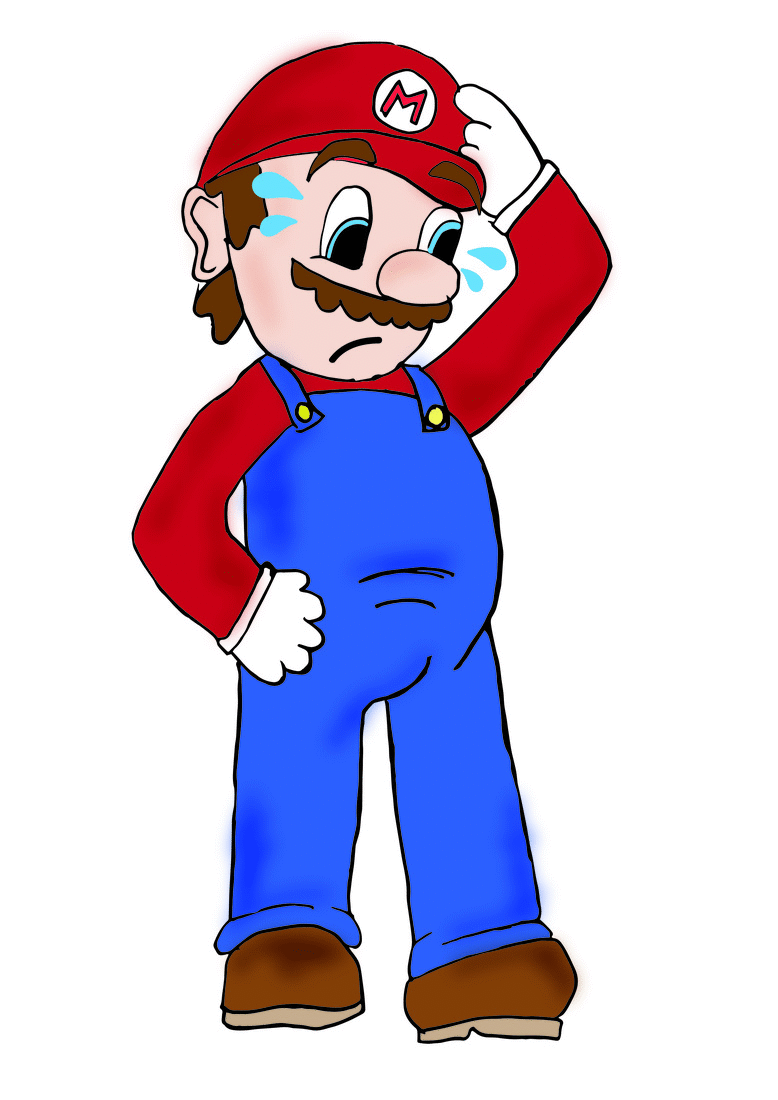
The Evolutionary Basis of Suffering
As Candace Pert, M.D. explains in her book The Molecules of Emotion, “The mind is in the body.” Neuropeptides (protein-based information molecules, originating in the brain) each associated with a different emotional “tone” — stress, joy, anger or whatever — spread throughout the body surrounding and permeating millions upon millions of cells, coordinating and communicating with every major biological system to translate thought into feeling.
“Peptides are the sheet music containing the notes, phrases, and rhythms that allow the orchestra — your body — to play as an integrated entity. And the music that results is the tone or feeling that you experience subjectively as your emotions.” — Dr Candace Pert
Why, then, is this music so ceaselessly unpleasant, unharmonious and headache-inducing?
Obviously, when the lives of our ancestors depended on remaining with the “in-crowd” of their group, these sentiments played their part, as Jevan Pradas explains in The Awakened Ape: “The physiological and behavioural signs of sadness, for example, marked by slow motor function, fatigue and weeping were cues to other members of our group that we needed aid and comfort… By becoming angry you could let others know that they need to put more emphasis on your welfare and less on their own.”
Ultimately, however, these happiness-inhibiting emotional displays are now an inconsequential and ultimately unnecessary component of the human experience. They only ever drown out the rich composition of the here and now. Put simply, negative emotional responses are the rehearsed, automatic outcries orchestrated by the On-Board Assistant in order to bend the world and others into conformity with your wants. (Note: our wants are often, rather ingeniously, disguised as needs.)
For example, you’re a child, playing with your older brother and cousin. For some reason, however, they decide they no longer wish to include you and tell you to bugger off. Neuropeptites in the keys of sadness, rejection and anger all churn through your bloodstream. You fall to the ground with a mighty huff and proceed to cry, shake and scream until your mother runs from the house, consoles you, and commands that the others “play nicely”.
Unconsciously, you then “code” your Biocomputer by instructing it that: Resistance is the key to getting what I want.
You may argue that an emotion such as anger is necessary for conveying strong disagreement with something such as injustice, and crucial in bringing about change within that context. However, anyone willing to commit unjust acts is evidently someone heavily associated with, and ruled by, their In-Game Character (ego), so much so that fear of loss of status or material comfort is motivation enough to deal in suffering. The consciousness of anyone so consumed by the protection of self-identity will be inflamed by your resistance, antagonising the situation. “People who fight fire with fire usually end up with ashes.”

Additionally, once you truly grasp the fact that “all the world’s a stage, and all the men and women merely players,” you see that in order for there to be heroes there must be villains. To appreciate the evildoers of the earth is thus to know that their injustices necessarily imply their opposite — bravery and brilliance.
The majority of adults, heedless to the ballet of polarity, still play-out the evocative dances that they picked up from childhood. Their days filled with blind rages, panic attacks, melancholic flutters and profound periods of boredom.
“Most people you’re going to meet in your life — twenty, thirty, forty years old — on the inside: nine. You see this all the time: toys out of the pram, behaving like children.” — Dr Alan Watkins
The obvious (but often indigestible) Truth
You are the architect of your happiness as you are the maker of your misery.
Emotion can be broadly divided into either pleasant or unpleasant sensation. Neither side of this divide, however, may enter into your system autonomously, without your brain bridging the gap between a happening, and how you feel about it. Every feeling is something you have attributed to an aspect of life that you have arbitrarily singled out. (This is known as the Appraisal Theory.) As Alan Watts said, “When we analyse, we use our eyes and ears as scalpels and we dissect everything. And we have to put a label on every piece we chop off.”
That which enters your mind, that which is permitted an audience with your consciousness, is singled out by your Reticular Activating System (the RAS), an area of the brain just above the spinal cord. The RAS “acts as the gatekeeper of information between most sensory systems and the conscious mind.”
Logically, the data that the RAS forwards to the readout of our On-Board Assistant is determined by the way we prioritise the happenings of the Game World. This, in turn, is determined by the programming with which our minds have received throughout our lives. And this priority programming is defined by the Game Rules we have adopted, willfully or unwittingly.
Game Rules (and conditional happiness)
“Most mammals emerge from the womb like glazed earthenware emerging from a kiln — any attempt at remoulding will only scratch or break them. Humans emerge from the womb like molten glass from a furnace. They can be spun, stretched and shaped with a surprising degree of freedom.” — Yuval Noah Harari

Commonly referred to as personal belief or values, Game Rules are the fabricated conditions that Players either consciously abide by, or are unconsciously bound to. Whilst there is nothing inherently wrong with Game Rules — for they add to the cultural depth of the Game World — it is the inability to appreciate their arbitrary nature that transmutes false obligation, into palpable discontent.
These rules cause upset only because we conform to them en masse. Can you imagine an African tribesman becoming emotionally disturbed by his inability to play the guitar, afford the latest Nikes or dexterously wield a knife and fork?
Classic modern-day Game Rules include: being intellectual, sexually accomplished, expensively dressed, exceedingly gregarious, expertly individual, and anatomically akin to some protagonist of Greek mythology.
Game Rules, when viewed as necessities, are the states and situations that must be present in order for Players to feel at ease, to access happiness. Here, they behave like neurological tripwires, where any thought, revived memory, future projection, exterior event or life situation that fails to conform with any one rule will, invariably, result in the loss of joy. These needs, musts, shoulds and should nots are primarily the lines of code our On-board Assistants received at the impressionable tutorial stages of the Game of Life, as children.
Psychologist Ali Mattu says “Your brain is an association machine — it connects things together. If you get attacked by a lion jumping out of a bush, you’re now going to associate that bush with fear.” Once you have singled out any aspect of your life that violates a Game Rule, your On-Board Assistant — booting up its long learned, automatic problem-solving mechanisms — orchestrates the only response it has been programmed with: emotional resistance. The emotion you experience is simply the associated physiological retort from your mind — accompanied by the conditioned assertion that “this is unacceptable.”
Anger when someone has wronged you. Despair when someone has left you. Anxiety when something goes wrong. Restlessness when something runs out. Fear when things change. Boredom when they don’t.
“The mind believes that through negativity it can manipulate reality and get what it wants. It believes that through it, it can attract a desirable condition or dissolve an undesirable one… Whenever you are unhappy, there is the unconscious belief that the unhappiness “buys” you what you want.” — Eckart Tolle
I once had a roommate who would become uncharacteristically stressed whenever the kitchen was untidy. Their mood then rebounding as soon as it was cleaned. Later, I learned that their mother was rather neurotic, and would bark and bite if the dishes had not been done and the surfaces remained unwiped.
When any one of your emotional tripwires is set off, any rule is broken, the ensuing peptidergic cascade clogging up your consciousness is “designed” to biologically bully you into “fixing” the situation. Like a cerebral carrot and whip mechanism (except more whip than carrot) emotions spurt throughout your body, pushing you to act upon the things you are programmed to desire and things you are programmed to fear.
Hard-wired for Happiness
As children, we each experienced unbridled enthusiasm for life. Last week was insignificant and the future didn’t extend past bedtime. This reverence is often referred to as ‘childlike innocence’. Though, now, as many anthropologists have observed visiting modern-day hunter-gather tribes and documenting their “uninterrupted humour and lighthearted disposition”, this childlike revelry is none other than our natural mode of being.
“I believe that happiness is our natural state, that bliss is hard-wired.” — Dr Candace Pert
In your infancy, other children did not pose as potential threats to your desirability or intelligence; you did not assess their clothes, their speech or their education. People were playmates. Life was not something to be conquered or feared — existence was playtime. In fact, you were infatuated with the entire shebang — and all its peoples. You were in love with life.

The word Love simply denotes an enormous amount of gratitude we have for something or someone. As our biocomputers are gradually encoded with all the Game Rules we must adhere to, our mental model of how the world ought to be becomes ever more selective and defined. Being in love with life thereon becomes painfully conditional, reduced down to the momentary exhalations when life, somehow, incredibly, conforms to that model. And thus, for the most part, life’s a fucking drag.
“There is one reason and one reason only why you feel stressed, and that is you have a very rigid idea of how the universe should be… And the universe just isn’t playing ball.” — Dr Srikumar Ra
Falling Back in Love with Life
There are ultimately three ways to maximise joy within the Game of Life: dissociation from the In-Game Character, halting the incessant scanning of your On-board Assistant, or by reprogramming the mind so that whenever any Game Rule is broken your happiness is not immediately torn from you. Each of these approaches — disidentifying from one’s ego, no longer being harried by the constant seeking and assessment of your rational mind, and being addicted to certain external conditions being satisfied — work in tandem:
In-Game Character: If you no longer derive your sense of self from the illusory idea of who you are within the Game World, by default your mind quietens. It no longer feels continuously threatened by other people or happenings. Dissociation from the In-Game Character also means that there are fewer Rules and forms in which you believe this make-believe phantom must adhere to and embody.
On-Board Assistant: If your mind is still, there is a cessation of mental chatter. For most people, a great deal of mental chatter is toxic — a continuous, cynical assessment of how the ego is being presented and which societal convention (Game Rule) may be being violated.
Game Rules: By decoding and rewriting the Game Rules that routinely quash your contentment, the incessant feedback of your On-Board Assistant, as it performs countless threat assessments and endlessly troubleshoots your life situation, is cut back to relative silence. The In-Game character transitions from a stone in the machine — grinding rigidly and unharmoniously against the melodic cogs of life — to a fluid centre point from which the whole game plays out; no longer substantiated by the structure of obligation and expectation.
And it is this last method that we shall focus on: pinpointing and rewriting the Game Rules that result in perpetual unease.
Pinpointing the Game Rule underlying your unhappiness:
Like stubbing your toe, whenever you are experiencing any kind of negativity, life is providing you with feedback to alter your behaviour; to reprogram certain mental conditions from imperative, to preferential.
As soon as you are aware that you are disturbed, you can be certain that any one of your psychological tripwires has been snagged — life, in this moment, is not conforming to the model you laid out for it. In this state, the aforementioned RAS system is honing in on the discrepancy (or discrepancies) between your here and now and your make-believe model. Your On-Board Assistant, focusing solely on the person or situation which you have been conditioned to believe is unacceptable, defenestrates the richness and splendour of life from your consciousness. Thus negativity dominates your awareness, just as pain does upon stubbing one’s toe.

The whole process occurs within an instant. On the North American plains, when the very real, serrated threat of a sabretooth’s teeth was picked out from the surroundings, this emotional system could not wait around. It is the exact same process: sensory abstraction followed by the associated emotion.
Working back from this emotional flare-up, you will, in time if not straight away, be able to decipher the exact line of code within your subconscious (for this is where hard-wired Game Rules reside) that is generating your unhappiness. It is crucial that you understand and accept the causal relationship between your programming and your unhappiness; there is nothing outside of yourself to blame. You are not a victim.
“95% — 99% of your life is generated by the programming in the subconscious mind.” — Dr Bruce Lipton
By fully accepting responsibility for how you feel, you create space within your awareness, freeing up the essential conscious capacity to begin questioning why you feel as you do; which arbitrary condition you are forcefully trying to make life fit into — like a t-shirt two sizes too small for a skittery younger cousin.
The Buddha called these arbitrary conditions ‘desires’ — the desire to be someone, to have something, to avoid something else — they are “rules”. He also said that “there is no fear for one whose mind is absent of desire.”
Asking yourself questions in a state of emotional upset is akin to tracing the burn mark left by the fuse that led to detonation: you find the ignition point, the spark.
Example questions include: “What is causing me to feel alienated from my here and now?” “Is anything immediately wrong? If not, what is that is creating this animalistic threat response?” “What thought/event/person triggered me to lose my tranquillity?” “What facade is my ego trying to uphold?” “What is it about me that I think people can’t accept or love?” “If I were granted one wish to alter my current reality, which thing would I change in order to feel happy again?”
With practice, you should be able to distil the incoherent emotion down to one particular subconscious program that is causing your unease. For example: “I believe I must be found to be attractive/intelligent/interesting.” “I need financial security to feel safe.” “I have to be better than others.” “I need reassurance that I am loved.” “I believe that anger is the way to manipulate people into conforming with my model of how they should behave.”
2. Rewriting the Subconscious
One marvellous aspect of the On-Board Assistant is its input receptiveness, it evolves. In modern-day neurology, this is known as Neuroplasticity and is explained as such:
“Our brains are constantly being shaped by experience. Most of us have very different behaviours and thoughts today than we did 20 years ago. This shift is neuroplasticity in action; changes in brain structure and organisation as we experience, learn, and adapt.” — Brain Works Clinic
As Dr Bruce Lipton, the author of The Biology of Belief, says “the subconscious mind is very powerful and very fast, but it’s totally habitual. It only plays back what it has learned.” He explains that the subconscious mind is like a tape recorder: approaching it and giving it vocal instructions from the conscious mind to “change the tune” is not going elicit a change — you must know where the record button is.
The subconscious mind can be effectively reprogrammed with several different techniques. In addition to practices such as Psychological Kinesiology and Neurofeedback, the subconscious can also be breached through repetition (how skills are assimilated through practice), especially at certain times of day, when we are more receptive to reprogramming due to the temporal changes of our brainwaves.
Brainwaves are produced by synchronised electrical pulses from masses of neurons communicating with each other. Our brainwaves change according to what we’re doing and feeling. When slower brainwaves are dominant we can feel tired, slow, sluggish, or dreamy. The higher frequencies are dominant when we feel wired, or hyper-alert.” — Brain Work Clinic
Between sleep and wakefulness, we pass from delta brainwaves (slow, deep frequency), through theta and alpha brainwaves, into the brainwaves associated with normal waking consciousness — beta. It is during the two transitionary states — alpha and, primarily, theta — that our brains are most receptive to programming. For, “theta is our gateway to memory, intuition and learning”.
Children at the ages 0 to 7 operate largely at the theta end of the psychic spectrum. Evolutionarily, this enabled us to store data on thousands of different varieties of flora and fauna: where to find them, how to hunt them, which to consume, which led to mystical experiences, and which to sneak into the rival camp’s stew. Now, however, most child’s brains are potholed by the noxious, limiting beliefs downloaded into their On-Board Assistants by their parents and society; programmed by their parents before them and societies corresponding iteration, ad Infinitum.
Hypnotherapy and Thetahealing also utilise the heightened neuroplasticity characteristic of theta-level brainwaves.
The Method
Pinpoint the Game Rule/personal belief that is creating your happiness and tranquillity to shortcircuit. For example, “I need to feel popular in order to feel happy.”
Take your phone and make a recording of a statement(s) that counteracts the existing belief. For example, “I am loved, I love myself, the here and now is always enough.”
Finally, listen to the recording as much as you possibly can, particularly when falling asleep, as the rigidity of your subconscious opens up to your rewiring. And that’s it. Happy Reprogramming!
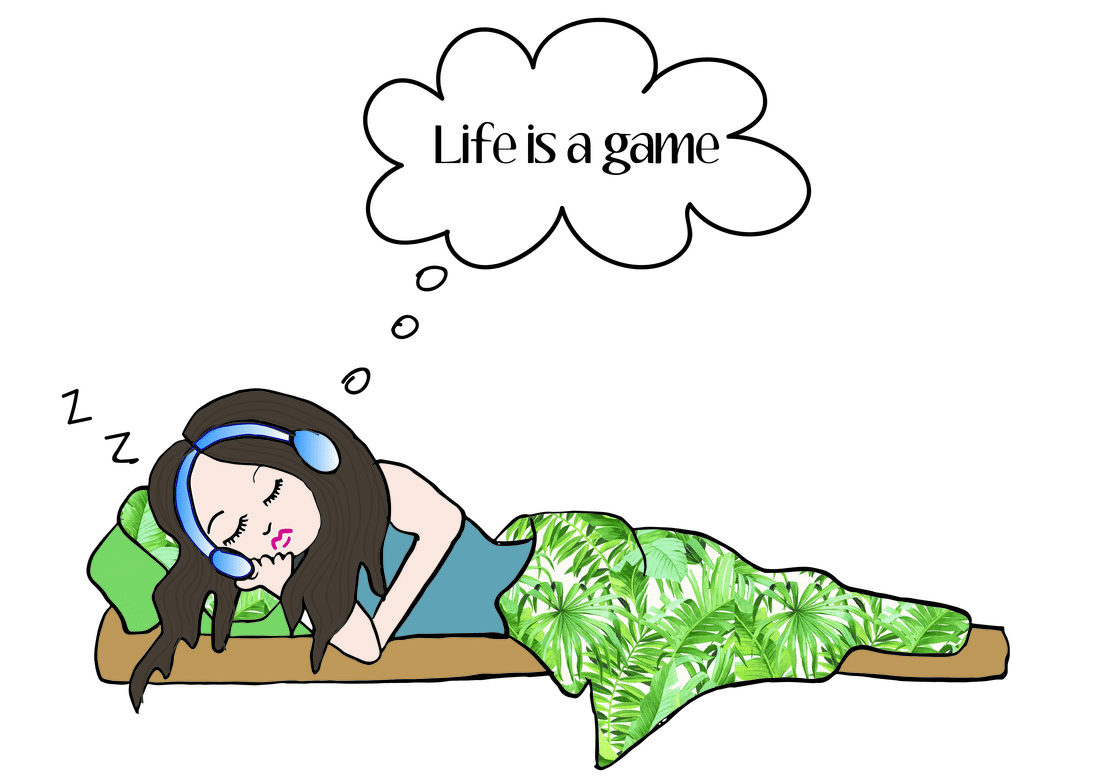
Healing the Split
Once you have eliminated the subconscious bind to the Game Rules that once dictated your emotional landscape, you will begin to enjoy a consciousness not simply less disturbed, but more whole, complete and satisfying.
The immeasurable wealth of experience — from the people previously ostracised that could not conform to your behavioural models, to the chilly palm of the breeze on your cheek — will be yours to explore in the fullest. The psychic pollution arising in the space between Consciousness and the In-Game Character — You and yourself — will be dissolved. In the words of Eckart Tolle, “the split caused by self-reflective conscious is healed, its curse removed.”
You are no longer pulled from the present; casting the mind’s eye over the shoulder of ego. You no longer strive to protect yourself, to conform, to achieve, to become.
There are no rules to necessitate the striving. You are free to tumble arse over tit in love with life all over again, a child once more.
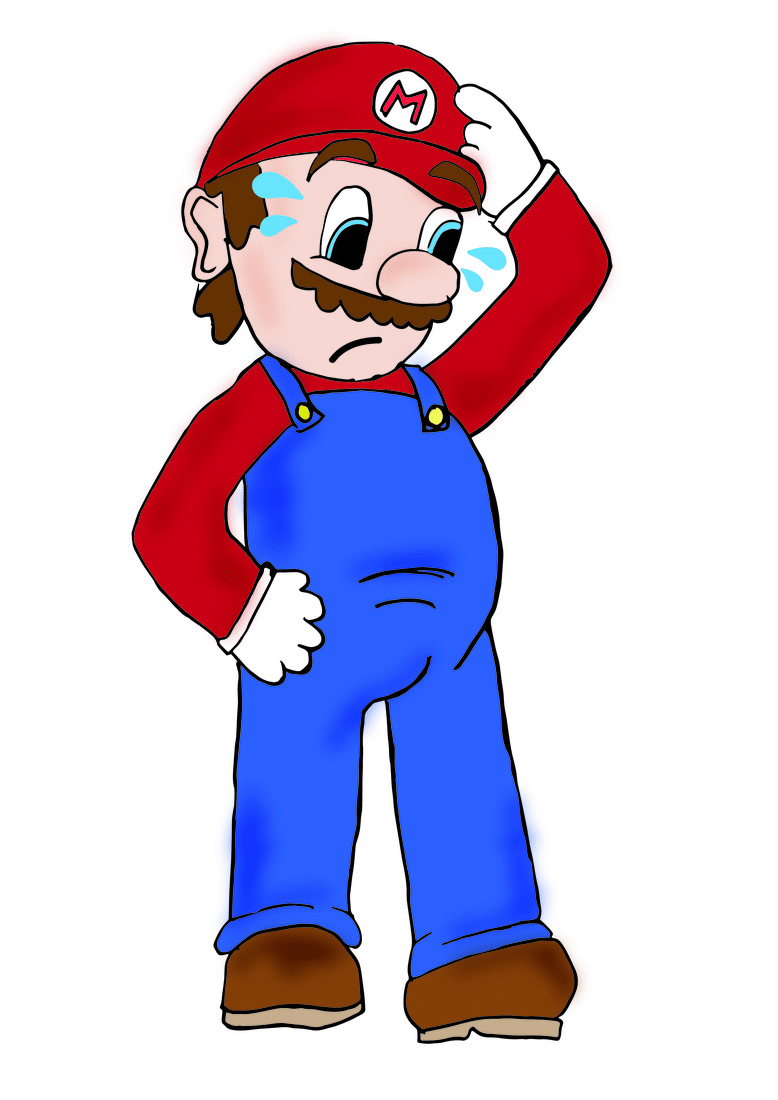
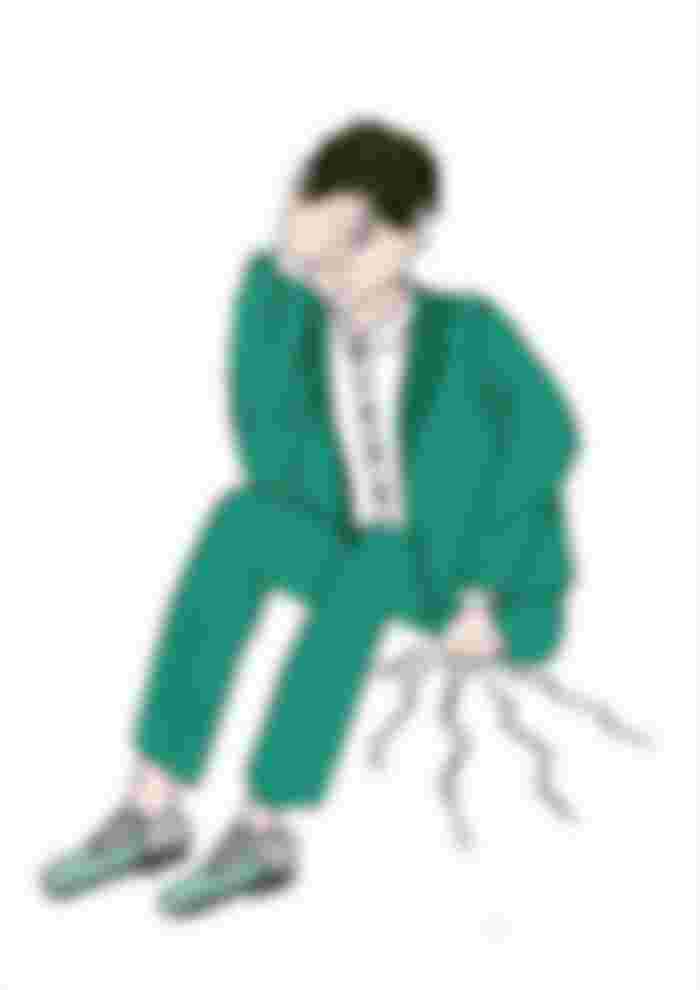



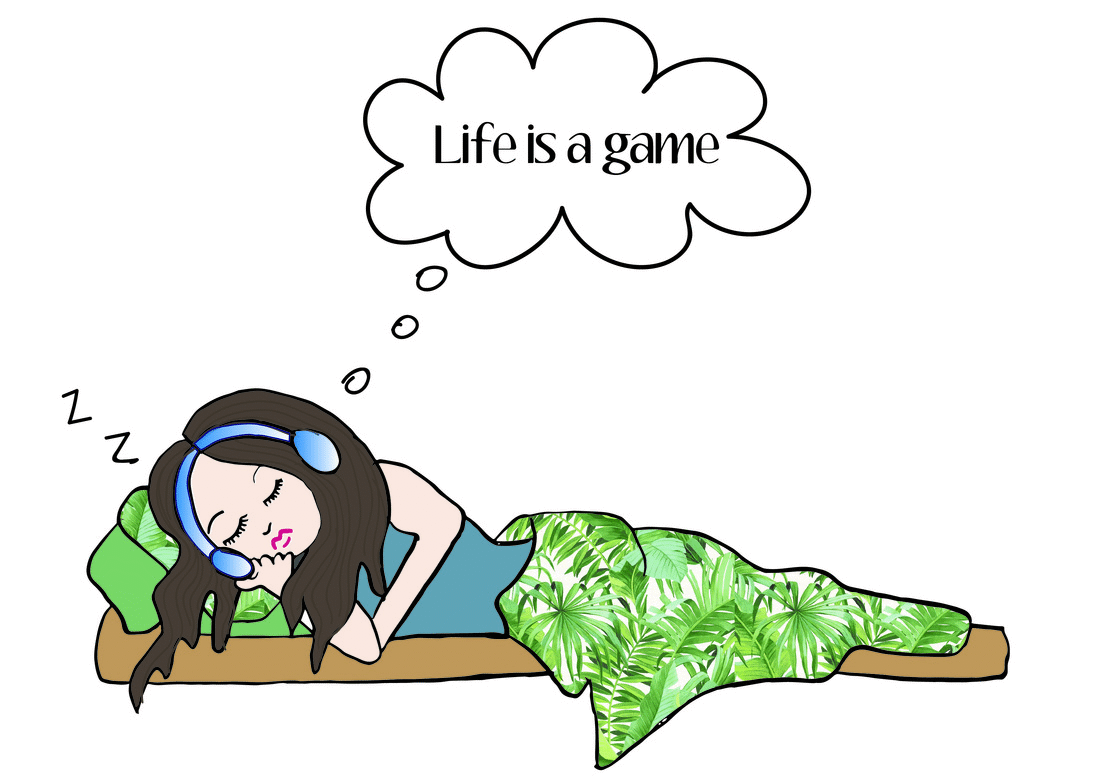
This is the way I want to describe what life is; life is like a towel with no head, the side you used to clean your anus today might be the one you will use to clean your head tomorrow.